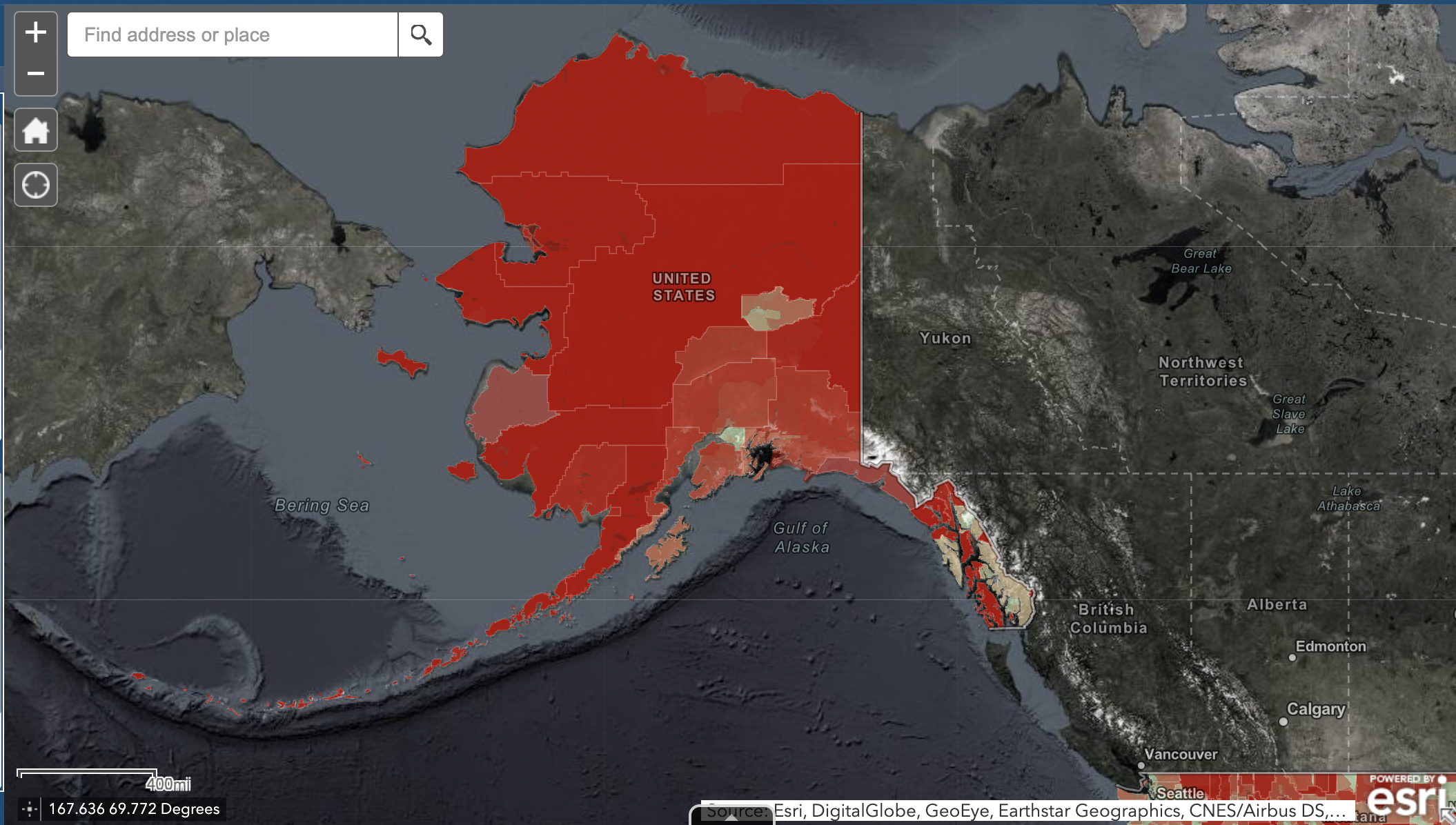
- Details
- By Tripp J Crouse - KNBA
This story was originally published by KNBA on December 13, 2021. Read the original story at KNBA. Republished by Native News Online with permission.
In November, President Joe Biden signed the $1.2 trillion Infrastructure Investment and Jobs Act into law.
The infrastructure funding package will deliver $550 billion annually over five years -- to support roads, mass transit, rail projects and renewable energy.
The funding will also help improve broadband in the state.
"There's about $1.5 billion coming just to the state of Alaska for broadband development."
Bissett also chaired Governor Mike Dunleavy's broadband task force. That task force provided recommendations to how the infrastructure could be spent.
"We want, you know, reliable fiber type connections to the home, and I think that, you know, most of our villages will show up on, you know, non-existent or what's considered underserved, which means they don't have 25-three basic broadband service. The list in the report is basically listing every single village."
The state will receive an allocation of about $65 million for water and waste treatment plans, but Bissett says it might not be enough.
"There is a village whose washateria burnt down. They still do not have running water, as do 30 other communities in Alaska. The cost of one wastewater treatment plant to have clean running water in the village of Stebbins is $57 million. For one village. So when the entire state gets 65 million to start thinking, how far does that really go in terms of capital projects and actually getting running water where it's needed?"
Various communities will be able to provide their input on the infrastructure funding during Day 2 of the Alaska Federation of Natives convention.
More Stories Like This
Native News Weekly (August 25, 2024): D.C. BriefsUS Presidents in Their Own Words Concerning American Indians
Native News Online Launches Year-End Campaign to Support ‘Warrior Journalism’
Native News Online’s Year-End Live Stream - Recap of 2025: A Night That Brings Indian Country Together
GivingTuesday: Groups Making a Real Impact in Indian Country
Help us tell the stories that could save Native languages and food traditions
At a critical moment for Indian Country, Native News Online is embarking on our most ambitious reporting project yet: "Cultivating Culture," a three-year investigation into two forces shaping Native community survival—food sovereignty and language revitalization.
The devastating impact of COVID-19 accelerated the loss of Native elders and with them, irreplaceable cultural knowledge. Yet across tribal communities, innovative leaders are fighting back, reclaiming traditional food systems and breathing new life into Native languages. These aren't just cultural preservation efforts—they're powerful pathways to community health, healing, and resilience.
Our dedicated reporting team will spend three years documenting these stories through on-the-ground reporting in 18 tribal communities, producing over 200 in-depth stories, 18 podcast episodes, and multimedia content that amplifies Indigenous voices. We'll show policymakers, funders, and allies how cultural restoration directly impacts physical and mental wellness while celebrating successful models of sovereignty and self-determination.
This isn't corporate media parachuting into Indian Country for a quick story. This is sustained, relationship-based journalism by Native reporters who understand these communities. It's "Warrior Journalism"—fearless reporting that serves the 5.5 million readers who depend on us for news that mainstream media often ignores.
We need your help right now. While we've secured partial funding, we're still $450,000 short of our three-year budget. Our immediate goal is $25,000 this month to keep this critical work moving forward—funding reporter salaries, travel to remote communities, photography, and the deep reporting these stories deserve.
Every dollar directly supports Indigenous journalists telling Indigenous stories. Whether it's $5 or $50, your contribution ensures these vital narratives of resilience, innovation, and hope don't disappear into silence.
 The stakes couldn't be higher. Native languages are being lost at an alarming rate. Food insecurity plagues many tribal communities. But solutions are emerging, and these stories need to be told.
The stakes couldn't be higher. Native languages are being lost at an alarming rate. Food insecurity plagues many tribal communities. But solutions are emerging, and these stories need to be told.
Support independent Native journalism. Fund the stories that matter.
Levi Rickert (Potawatomi), Editor & Publisher
